In a report released by the Urban Indian Health Institute, Salt Lake City is one of the top 10 cities in the United States to hold one of the highest cases of sexual assault, domestic violence and stalking towards Native American women. Female native students at the University of Utah say that they’re not surprised.
“All I can say is that it is terrifying, especially what has happened these past three years on campus,” said Shaniah Chee, a junior anthropology major. “I feel like I am not safe walking around on campus alone, so I like to call my mom when I am walking back from spending a few hours in the library after dark.”
Chee is an enrolled tribe member of the Navajo Nation. She believes that there should be steps for the U to improve the safety of students, and especially for female native students like herself. “I think there could be more lights up to the dorms, as well as [a] local security standby during the night,” Chee said.
She also believes that opportunities to learn self-defense “would be great for native women on campus to know, just in case they need to know.”
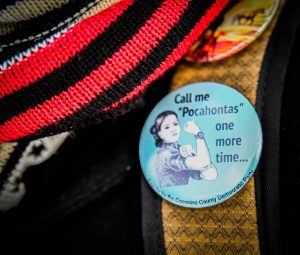
In a study held by the National Institute of Justice, 84 percent of native women will encounter violence in their lifetimes. Efforts carried out by activists and organizations advocating for justice and policy reform have seen members of Congress tackle the issue as well. One is the Savanna’s Act.
Savanna’s Act was proposed by Sen. Heidi Heitkamp (D-ND) this past October in response to the alarming rates of sexual violence and missing cases of native women. The act would serve the interests of U.S. tribes in combating the epidemic levels of sexual assault and domestic violence towards Native American women. Currently, the act has rallied bi-partisan support and passed through the Senate Committee on Indian Affairs. It is now waiting for a floor vote.
Restoring Ancestral Winds, a Salt Lake County non-profit committed to awareness of high rates of sexual assault and violence towards Native American women in the region, encourages lawmakers and officials to support efforts of Savanna’s Act. Funded by the Department of Justice, the organization is one of the 18 tribal coalitions in the nation committed to collecting data-assessments in the state in the interests for Utah tribes. “If it does go through, it will actually give legitimacy to the efforts that we have to build a multi-jurisdictional coalition and coordinating a task-force around sexual violence,” said Moroni Benally, RAW’s coordinator of Advocacy and Public Policy.
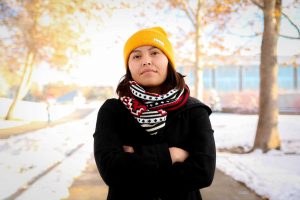
If passed, this act would provide funding to organizations like RAW and to tribes in order to accelerate on data collection for cases. Regardless, the organization aims to release a state-wide report of data recording instances of violence against native women the late spring in 2019. At the U, Franci Taylor, the executive director of the American Indian Resource Center, said the passage of acts provide enormous support for tribal communities and members, but until local officials acknowledge the concerning data, these efforts carried by the bills will render unproductive.
“The acts need to be there to establish precedence. But until we can convince local police departments that this is a serious problem that they have to address, we’re not going to get anywhere,” Taylor said.
These concerns have sparked a movement called “Missing and Murdered Indigenous Women,” spanning across the U.S. and Canada. Activists have pushed to highlight what many believe federal and state courts have failed to do: effectively report cases affecting native women and put the work in.
Taylor thinks that education can aide mitigating the legal quandaries of prosecuting those found committing violence against native women. She believes the inherent structures of the criminal justice system has already put tribes at a disadvantage.
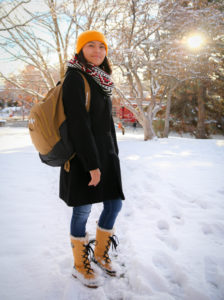
“How do we get to a higher level when we’ve been pushed into such a basement box? We need educated young native advocates to buck the system,” Taylor said.
Earlier this year, the annual U pow-wow dedicated its theme to Missing and Murdered and Indigenous Women. Kassaundra John, a sophomore design student, helped to centralize the pow-wow around the subject. Since then, John says that her perspective as a native woman on campus has further intensified.
John explained that she shares her friends’ frustration that men only date them based on their identity, an uncomfortable experience as a student. “My native girlfriends and stuff— we’re like yeah, some dudes only date us because they know we’re Native Americans,” she said. “It makes us feel a little degraded in a way. They only want us for this aspect of ourselves because they think it’s exotic.”
November was National Native American Heritage Month. Events mainly hosted by the AIRC to celebrate the month included meeting the U’s Lacrosse team to celebrate their inaugural spring season and Rock-your-Mocs, a week where native students don moccasins to class. John believes that the university has done minimal effort to celebrate the month. “This month has been a letdown for me,” John said. “Just because I thought we were going to have more events and more publicity about it. The U uses the name and [doesn’t] honor the people in that sense. We can use that time to do group events and have discussions about Missing and Murdered Indigenous Women. How we feel about that, ways we can come at it in a way, or bring awareness.”
Regarding the high rate of MMIW cases in Salt Lake, John acknowledges her position as a Navajo woman, especially when going to school.
“I commute to school, so I feel even more on edge knowing that demographically-wise,” she said. “I’m more likely to be raped, kidnapped or hurt. It’s scary to know that, in a way.”


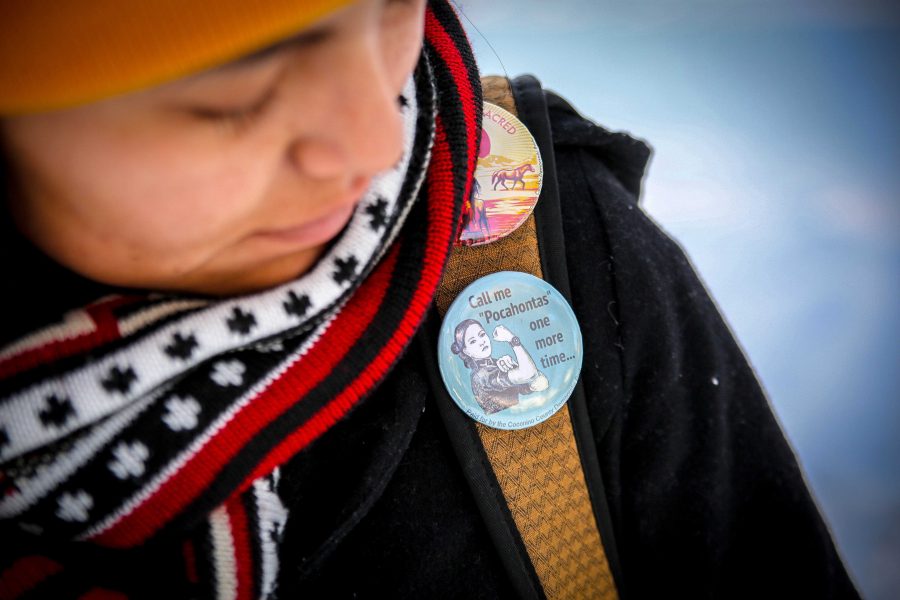
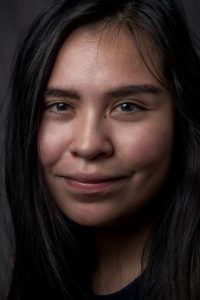
Rita Marie Kelley • Dec 17, 2018 at 4:22 pm
It’s difficult to realize that the American Holocaust is still continuing, especially with this atrocity: America is and has been a very sick country, built on the backs of slaves and the treachery of how we have treated First Nation people. Shame on us. No woman should feel anxiety over walking around any campus, much less, here in UTAH, which has the distinction of having some of the worst social problems in the entire country: highest rates of divorce, bankruptcy, teen pregnancies, teen suicides, drug abuse and this, HATE crimes against native women. Each day, I grow less and less proud to live in America, definitely NOT “The land of the free…”
#NotInMyName
Catherine K., SEMO '95 • Dec 12, 2018 at 9:18 am
I attended university over 20 years ago in another part of the USA. Being rather independent, I did traverse campus regularly after sunset. The other women in my dorm hall voiced concerns to me about my safety. To calm their nerves, I joined the Tae Kwon Do club at the school.
I do wish to suggest to Ms Chee that perhaps she look in to something like this for herself, if I am not over stepping my boundaries, and if it is offered on campus. The first time I threw a man that weighed about 1.5 times what I weighed, it was so very empowering! I even knocked the wind out of him!
Though at the most there were only 3 females in the club, the instructors knew why we females were there and were encouraging to us. And they also reminded us that our best option was first to use our feet, and run to avoid the situation. Besides Tae Kwon Do, they also taught us Hap Ki Do. No, I did not become a black belt, and I have not studied any marital art in years, but I learned how to defend myself better in case it was ever needed.
Tae Kwon Do, Hap Ki Do, Krav Maga, Ju Do, Capoeira, etc… May they be good tools to be better students, to look out for yourselves, and your friends.
Here’s to good grades!
Warm wishes from the Midwest
T • Dec 11, 2018 at 8:22 am
I wonder, how much should we actually talk about this?
Do you know that the survey that was done to obtain this result listed an unwanted kiss as a child as sexual assault? Or drinking at a party and choosing to have sex?
The survey had a minuscule size of 148, and it suffers from severe skewing due to confirmation bias and leading questions. But the really telling part is that the surveyors decided if it was sexual assault, not the ones being surveyed. Of the 94% of the women surveyed that the surveyors decided were victims of rape or sexual assault, only 20% felt that they were. Meaning, that of the 104 women that the survey decided were raped or assaulted, only around 20 actually felt the need to report it. Furthermore only ~8% of those claims that were reported were substantiated and the aggressor was convicted. Meaning that of those ~20 people, only one had evidence. The actual rate of rape/sexual assault in America was 1.6 per 1000 last year, which when accounting for statistical chance in this survey is comparable.
But, why take my word for it? Go read the surveys and reports. Its Eye opening, Here is another one with inflated numbers that came to a number of 45% rather than 94%. https://www.cdc.gov/violenceprevention/pdf/NISVS-StateReportBook.pdf
But it found that multiracial women were much more likely to experience rape or sexual assault (again decided by the surveyors and not the ones being surveyed) and remember, if you have a glass of wine before having fun with your husband then clearly, you’ve just been sexually assaulted.
Stay frosty.
B.Victor BSCE '95 • Dec 10, 2018 at 10:23 pm
Well-written and thought provoking article.
Back in the early 90’s, we (among other special interests groups from the then Center for Ethnic Student Affairs) approached ASUU regarding safety especially for young women students. At that time, I recall several incidents on several classmate friends being “followed” back to their dorms. These groups were instrumental in convincing ASUU to obtain more of the blue light emergency call stations. My last visit to the campus I noticed a number of these stations were gone. Maybe replaced by something else or never replaced as new campus buildings were built. So I could see the lack of safety being a concern yet again for women on campus.
On a larger scale, violence against native women has grown. Living here in WA, I recall the tragedy of Misty Upham to which remains largely unsolved or resolved. And it is sad. Increased awareness is the key. While it is a small campaign, it can only grow. I am here to support as well. Stay stronger together.
D. Roberts • Dec 7, 2018 at 3:27 pm
Great issue and article. It is important for the native females to become familiar with the modern day rights of equality and the right to say no and to stand for your rights and beliefs. Many times native females are told and made to be subservient and meek. In the past this may have been exceptible but these modern days require for both sexes to step forward Into the modern era. If reports aren’t made and people aren’t made to pay for their actions then this kind of treatment will continue which is just not acceptable for any female to be treated in this manner. So please keep up the fight and know we support you. Thanks
K’é • Dec 7, 2018 at 12:17 pm
Well written!! And that an actual American Indian wrote this peace speaks volumes! Continue to write Ms. Spotted Elk, your voice is supported by your Indigenous peoples and ancestors. I for one, am so proud of you!
Charlotte Maughan • Dec 6, 2018 at 9:49 pm
Well written coverage of a serious issue